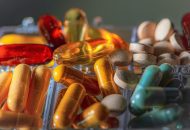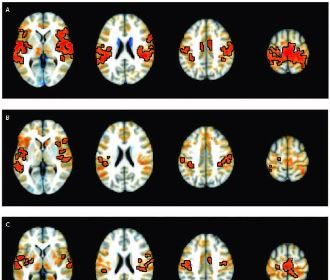Exercise and Nutrition Tips for Seasonal Affective Disorder

WASHINGTON — Welcome to November. We’re well into autumn and it’s time to “fall back” — daylight saving time has ended, there’s plenty of beauty to see and holidays to look forward to. But as the weather gets colder and the sun sets earlier, many people may begin to experience seasonal affective disorder. For some, it’s the “winter blues,” for others, it’s more serious.
It’s important to see a mental health professional if you think you may be experiencing depression or SAD. Here, we’ll give you some exercise and nutrition tips to boost your mood as we head into late fall and winter.
What Is Seasonal Affective Disorder?
Seasonal affective disorder, or SAD, is a type of depression that worsens and cycles with the changing seasons. It occurs in people who already have depression and is not a separate disorder.
According to the National Institute of Mental Health, people with SAD experience worse depression symptoms in the late fall and winter and feel better when spring begins.
The exact cause is unknown, but some research indicates the lack of sunlight may contribute. Less sunlight can cause you to produce less serotonin, more melatonin and less vitamin D. Disrupting the serotonin and melatonin cycle can affect your body’s daily rhythm, leading to trouble with sleeping and a lower mood. Low vitamin D levels can also affect your mental health.
Symptoms of Winter-Pattern SAD
Some people experience SAD in the spring and summer as well. Here, we’ll focus on what the NIMH calls Winter-Pattern SAD. If you’ve noticed that you feel worse in the darker and colder months, you’re not alone.
Below are some common symptoms to look out for. According to the NIMH and the Anxiety & Depression Association of America, symptoms must last more than two weeks.
- Feeling sad or depressed every day.
- Losing interest in activities you once enjoyed.
- Oversleeping or having trouble sleeping.
- Weight changes.
- Lack of energy.
- Difficulty concentrating.
- Withdrawing from friends and family.
Seek Professional Help
Talk to your doctor or a licensed mental health professional if you experience symptoms of depression or SAD. They may recommend therapy or medication. Some research shows light therapy may help as well.
Exercise Tips
Whether you meet the clinical criteria or not, you may feel down in the winter. Research shows that regular exercise may help decrease symptoms of anxiety and depression, boost your mood and cognition, improve self-esteem and simply provide a distraction.
- Cardio Exercise Outdoors: Bundle up and make the most of the daylight. Going for walks, jogs and bike rides improves cardiovascular health. It exposes you to natural vitamin D. For indoor workouts, consider getting a cardio machine in your home and place it near a window, or choose a gym with windows.
- Strength Training: The U.S. Department of Health and Human Services recommends two days of weekly muscle-strengthening exercises for optimal health. Building strength in the gym can also improve your self-esteem.
- Yoga: Practicing mindfulness during yoga classes can help reduce stress and improve mood. Studiesshowed practicing yoga may positively affect mental health and enhance psychological well-being.
- Exercise in the Morning: Exercising at any time of day is beneficial, but some research shows getting sunlight first thing in the morning can boost your mood. Exposure to light tells your body to stop producing melatonin. Disruption of the melatonin and serotonin cycle is one potential cause of SAD.
- Try Group Fitness: Try out a group class or recreational sport. Working out with others reduces isolation and increases socialization, which can improve your mood.
Nutrition Tips
One symptom of SAD is craving carbohydrates and comforting, sweet foods. It’s good to listen to your body and eat what you’re craving, but it’s also important to balance it with an overall healthy diet.
Vitamin D
Research shows that low vitamin D levels are linked with depression. You can get your vitamin D level checked during routine bloodwork with your doctor, who may suggest taking a vitamin D supplement.
The National Institute of Health recommends getting 600 IU of vitamin D daily. Eating foods rich in vitamin D may help you reach your daily recommended intake and manage SAD symptoms.
- Omega-3 Fatty Acids: Salmon and fatty fish flesh from tuna, trout and mackerel are the highest sources of natural vitamin D.
- Dairy Products: Egg yolks and cheese contain vitamin D3.
- Mushrooms: Those exposed to UV light contain vitamin D2.
- Fortified Foods: Milk, orange juice and some cereals have added vitamin D.
Brighter Days Ahead
If you suffer from more depression symptoms in the dark months, it’s helpful to remember that winter, like all seasons, is temporary. Beginning on Dec. 21, the days will start to get longer again. A few months later, spring will come. Try your best to make the most of the sunlight, get your heart rate up, and eat vitamin D-rich foods. Reach out to see a professional when you’re struggling.
You can reach us at [email protected] and follow us on Facebook and X (formerly known as Twitter)

























